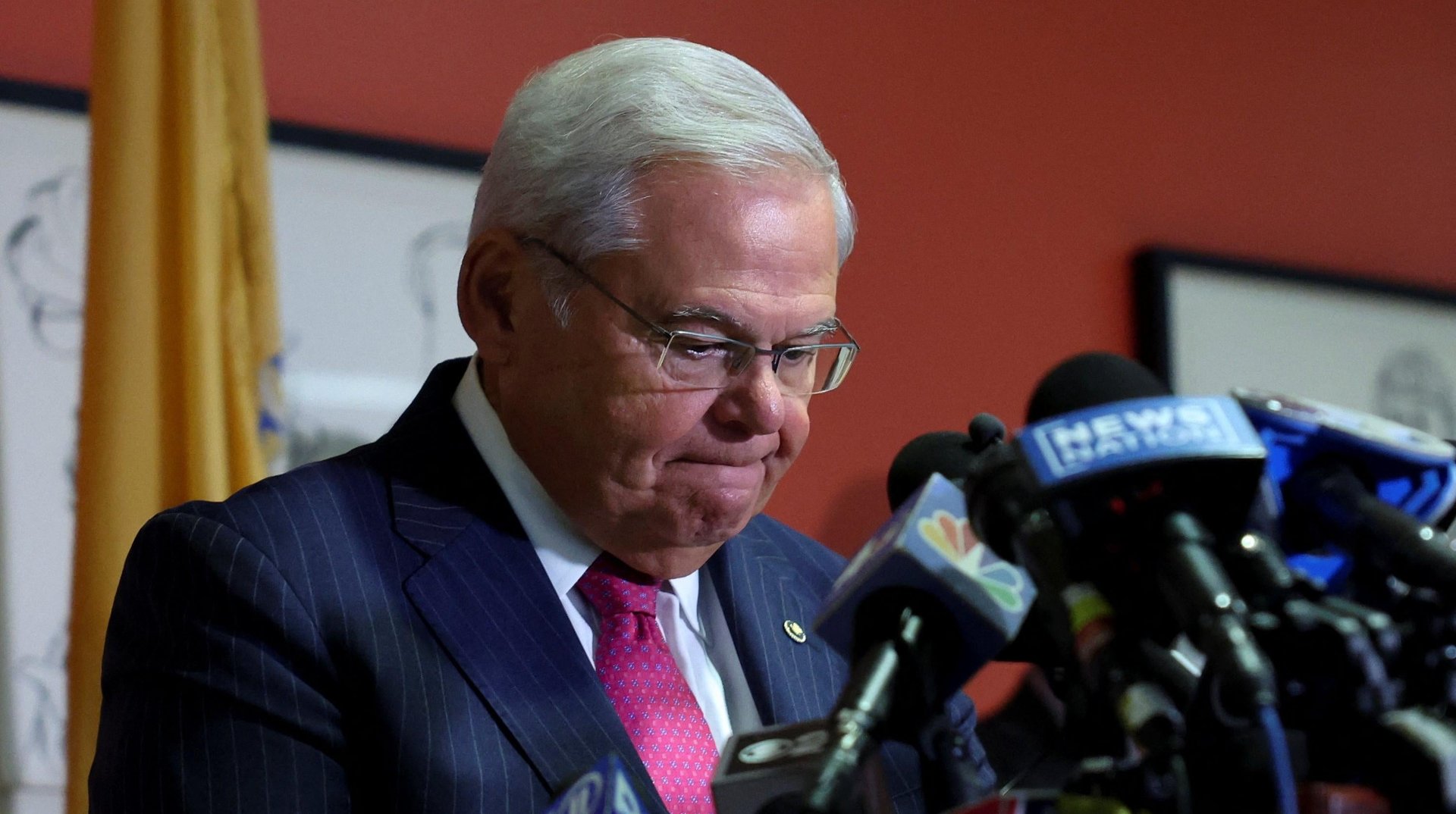How poor Egyptians paid for senator Bob Menendez's alleged bribes
A monopoly on halal meat certification never passed the smell test

US prosecutors say New Jersey senator Robert Menendez is a crook, and one of his victims is the meat-consuming population of Egypt.
Suggested Reading
The senator, who has denied the allegations and refused calls to resign, is accused of participating in an influence-peddling scheme that featured his wife, Nadine, and three businessmen, notably Wael Hana, an Egyptian immigrant to the US.
Related Content
Menendez allegedly ran interference in Washington on behalf of Hana and members of the Egyptian government and intelligence services, notably relating to weapons sales to the semi-autocratic regime led by president Abdel Fattah al-Sisi.
But perhaps the ugliest charge may be that Menendez helped Hana protect a lucrative monopoly over halal meat imports into Egypt, a display of how corrupt officials from around the globe leverage US power to protect their schemes.
The religious requirements that paid for Hana’s alleged bribes
A Muslim-majority country, Egypt requires imported meat to be certified as having been processed and transported in accordance with Islamic dietary rules. The government authorized several companies to audit meat producers and certify them as compliant.
That is, until 2019, when Egypt approved an American company operated by Hana, IS EG Halal, as the sole certifier of all meat imported from the US, and then from South America as well. With a monopoly on the largest sources of Egyptian meat imports, IS EG immediately raised prices. The Egyptian news outlet Mada Masr investigated the situation in depth, reporting that “certification fees for one container (27 metric tons) jumped from US$200 to over $5,000 in the US, and from $250 to $1,500 in South America.”
The day after Hana was told his monopoly had been approved, Nadine Menendez texted her husband, “[s]eems like halal went through. It might be a fantastic 2019 all the way around.” (A lawyer who worked with IS EG, Antranig Aslanian, was described as a “longtime friend” of Nadine in a 2022 Wall Street Journal story about the investigation.)
US and South American meat exporters, meanwhile, were upset by the new charges, and US government analysts attributed (pdf) the rising costs to the monopoly. The US Department of Agriculture (USDA) reached out to Egyptian officials protesting the monopoly and publicly criticized it.
“During a period when U.S. beef prices are dropping, the price Egyptian consumers pay for those products is increasing,” USDA market analysts wrote that year. “Markedly higher costs for halal certification likely explain the increasing prices to Egyptian beef consumers.”
In response to US pressure on his monopoly, prosecutors allege that Hana asked Menendez to counter the USDA’s criticism. They say the senator personally called a high-level official and demanded that the US stop opposing the monopoly.
The US didn’t stop its complaints in response to Menendez’s badgering, but IS EG held onto its monopoly—and funneled some of its profits to the senator and his wife. According to the indictment, IS EG paid $23,000 to cover a shortfall on Nadine’s mortgage, paid $30,000 to a front company set up by Nadine, and ordered two exercise machines and an air purifier that were delivered to the Menendez home.
Meanwhile, annual per capita income in Egypt is $3,600, and in 2019, the World Bank estimated that 73% of Egyptians live on a budget of less than $6.85 a day. Thanks to the monopoly, poor Egyptians faced a price increase of $0.73 per kilo ($0.33 per lb) of beef. This increase came shortly before the war in Ukraine, which disrupted Egypt’s wheat supplies and contributed to even higher food prices.
